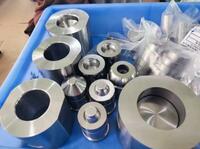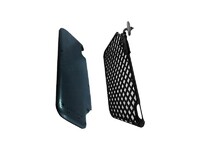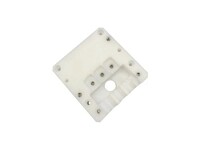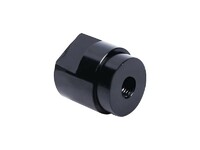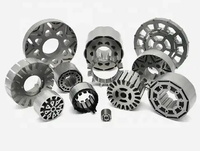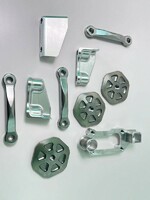Carbide Mold Components
Specifications
Carbide Components
We are very capable of customizing punches and dies to produce precision tungsten punches, bushings, ejectors, and die components from your CAD drawings. Our raw materials are imported from
designated companies. Tungsten carbide has excellent hardness, wear resistance and corrosion and corrosion resistance. Ultra-hard tungsten carbide has a longer service life and can increase
productivity through improved performance and reduced downtime.
Wear-resistant silicon carbide components are widely served by metal stamping production/manufacturing companies, custom metal fabrication, injection mold industry, metal mold/mold makers, tool and
die makers and mold making industry.
What Has Cemented Carbide?
Cemented carbide is an alloy material made of hard compounds of refractory metals and bonded metals through a powder metallurgical process.
Cemented carbide has a series of excellent properties such as high hardness, wear resistance, better strength and toughness, heat resistance, corrosion resistance, etc. Especially its high hardness
and wear resistance, even at a temperature of 500 ℃ also remains basically unchanged, at 1000 ℃ still has a high hardness.
Cemented carbide is widely used as tooling materials, such as turning tools, milling tools, planning tools, drills, boring tools, etc., for cutting cast iron, non-ferrous metals, plastics, chemical
fibers, graphite, glass, stone and ordinary steel, can also be used to cut heat-resistant steel, stainless steel, high manganese steel, tool steel and other difficult to machine materials.
How Do You Make Hardware Mold Parts?
1. Develop a machining production schedule.
2. According to the customer parts drawing, BOM list, according to the parts material, function, shape and other requirements reasonable preparation process and expected each process plan work
time,
3. Machining workshop to complete the mold parts of turning, milling, grinding, drilling, wire cutting, spark machine discharge, CNC milling processes, etc.
4. The quality department according to the process requirements of all parts for inspection and fill in the inspection records.
5. Parts qualified according to the packaging requirements for packaging and storage warehouse waiting for shipment.
Precision etching is a process of creating patterns, shapes, and designs on a variety of materials, usually metals, using an etching process. As a part of precision quality machining, this process
is often used in the manufacture of precision parts, such as integrated circuits, sensors, and other electronic components. In precision etching, the precision manufacturing companies controls the
chemical reaction used to etch a desired pattern into the material, which is then filled with an etching fluid.
- Country: China (Mainland)
- Founded Year: 2013
- Address: Floor 3, Building 5, Hengji Industrial Park, Heyi Community, Shajing Street, Bao 'an District, Shenzhen
- Contact: Irene Fu

